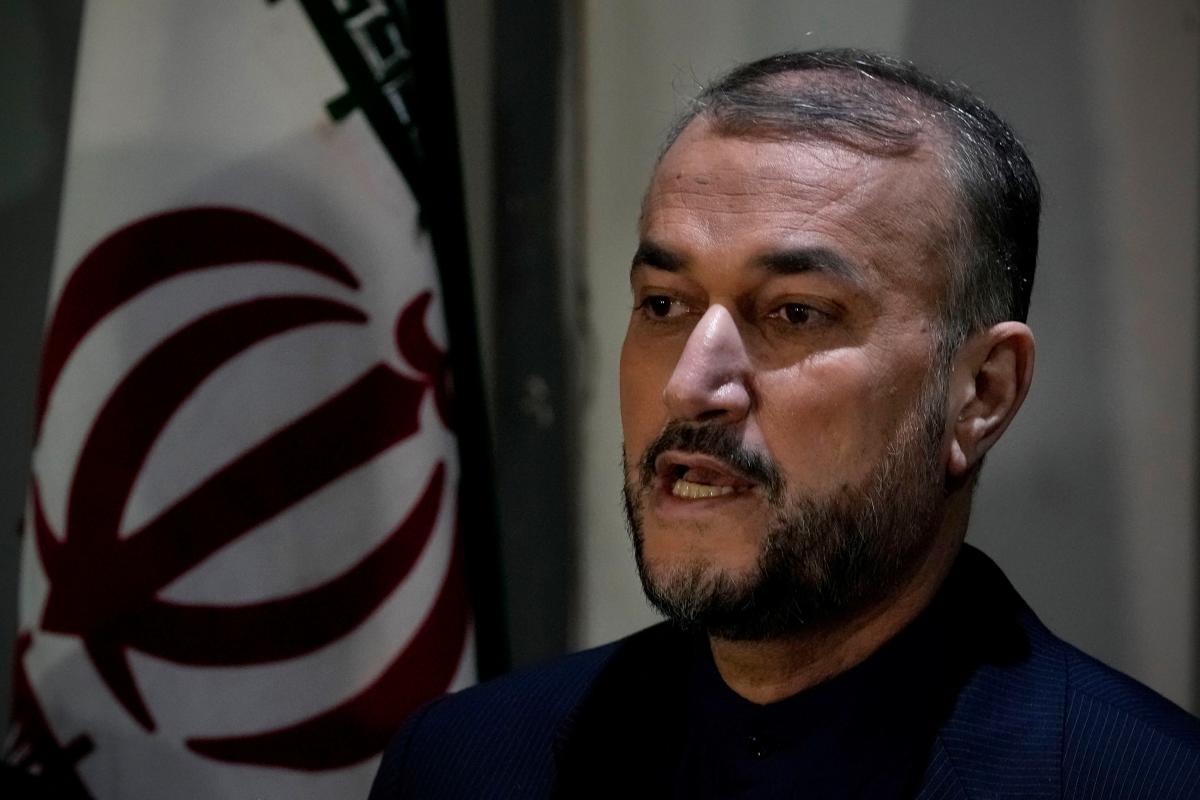
ROME — Iran’s foreign minister insists his country opposes Russia’s war against Ukraine, but was vague Wednesday about whether Tehran’s military cooperation with Moscow would include sales of drones that could carry missiles.
Earlier in the war, Iran was criticized in the West for not condemning Russia’s Feb. 24 invasion of Ukraine. But Wednesday, in the Rome daily La Repubblica, Foreign Minister Hossein-Amir Abdollahian was quoted as saying that “we are against Russia’s military attack in Ukraine.’’
Abdollahian arrived in Rome on Monday for a visit including meetings with Italian business officials and industrialists, as well as with the Italian foreign minister and Vatican officials.
The Iranian foreign minister was vague when asked about U.S. contentions that Russia is about to acquire Iranian drones that could transport missiles.
“We have various types of collaboration with Russia, including in the defense sector,” Abdollahian replied. “But we won’t help either of the sides involved in this war because we believe that it [the war] needs to be stopped.”
He went on to slam Western countries, saying their arms manufacturers want to sell weapons. “We will avoid any action that could lead to an escalation, but we will work to stop the war.”
Nuclear talks with Iran have been at a standstill for months. Abdollahian in the interview contended that the negotiators have made progress on a draft agreement but that ” there are other questions to be faced.”
Pressed to elaborate, the minister replied: “We are asking for a strong economic guarantee. If a Western business signs a contract with its Iranian counterpart, it must have the certainty that its project will be realized and will be able to receive compensation.’’ The comment apparently referred to business deals affected by sanctions against Tehran.
The International Atomic Energy Agency, the U.N.’s nuclear watchdog, reported last month that Iran has 43 kilograms (95 pounds) of uranium enriched to 60% purity — a short step to 90%. Nonproliferation experts warn that’s enough fissile material for one nuclear weapon if Iran chose to pursue it.
However, Iran still would need to design a bomb and a delivery system for it, which could likely take months. Iran insists its nuclear program is for peaceful purposes.
Tehran’s escalating nuclear work has raised alarms, and transparency is rapidly diminishing over its nuclear program. Last month Iran shut off more than two dozen IAEA monitoring cameras from nuclear-related sites across the country.
Asked about the cameras, Abdollahian denied that the Iranians shut them off, saying instead “we took them off the circuit” and insisting they were voluntarily installed.
“In whatever moment that the negotiations reach some result, we will bring back the 27 video cameras installed by IAEA inside our sites,” the minister said.




